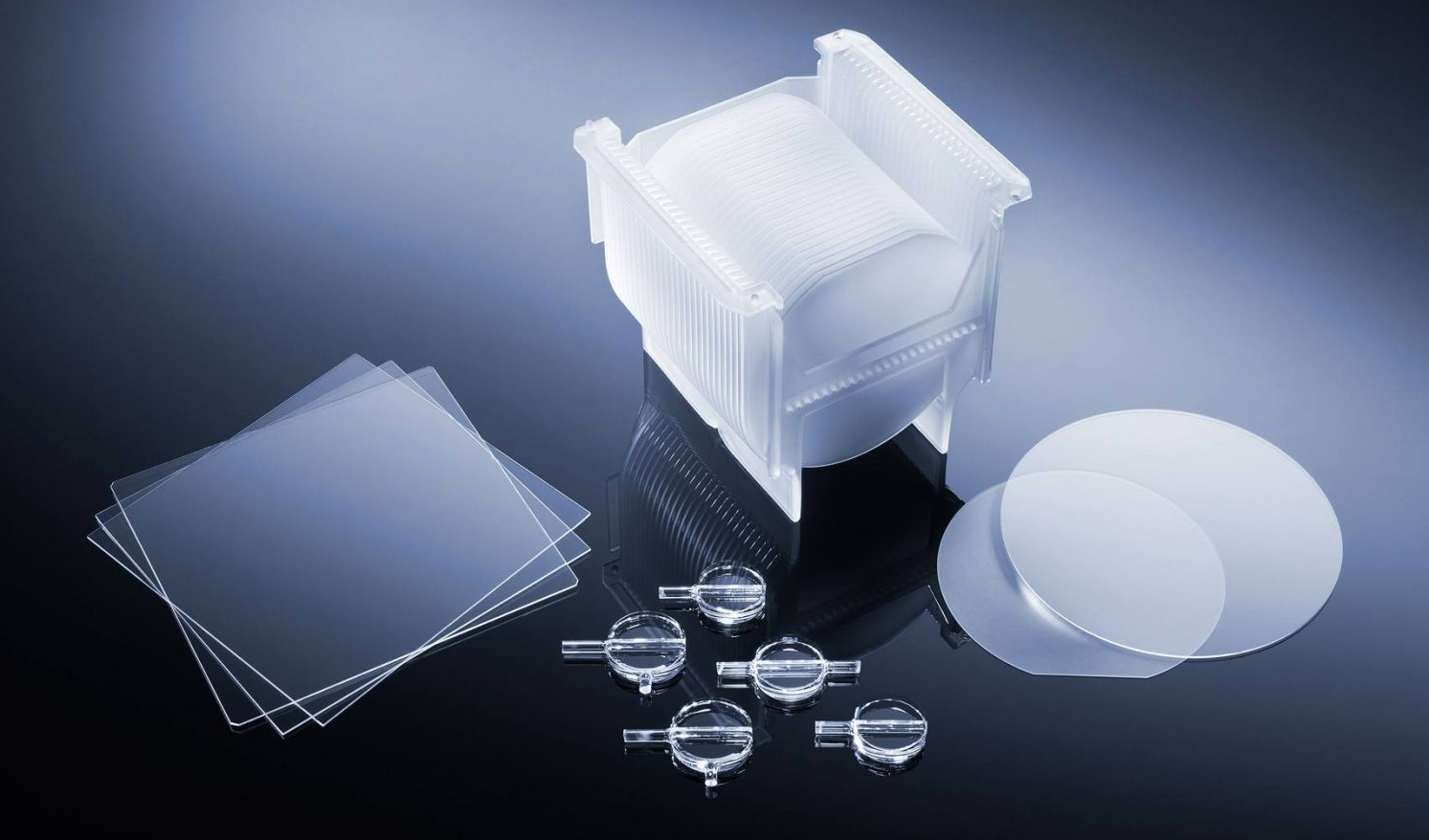石英玻璃,是一種只含二氧化矽單一成份的特種玻璃,含量可達99.999%。由天然結晶石英;如水晶、純的矽礦石或經人工高溫熔製而成。

分類:
石英玻璃按造製造的方法、用途或外觀來分類,如電熔透明石英玻璃、連熔石英玻璃、氣煉透明石英玻璃、合成石英玻璃、不透明石英玻璃、光學石英玻璃、半導體用石英玻璃、電光源用石英玻璃等。按透明度分為透明和不透明兩大類。按純度分為高純、普通和摻雜三類。
物理特性:
石英玻璃具有優異的光學性能,不僅可見光透光度特別好,而且透紫外線,紅外線;同時還具有耐宇宙放射線,和不透原子核裂變產物的性質。石英玻璃是良好的耐酸材料,除氫氟酸和300度以上的熱磷酸外,在高溫下,它能耐硫酸,硝酸,鹽酸,王水,中性鹽類,碳和硫等侵蝕,其化學穩定性相當於耐酸陶瓷的30倍,相當於鎳鉻合金和陶瓷的150倍,它耐高溫,耐熱震,熱膨脹係數非常小。石英玻璃電學性能極佳,在常溫下,它的電阻相當於普通玻璃的10倍,對全部頻率的介電損失很微小,絕緣耐壓強度大。
產業應用:
然而,隨著技術的進步,石英玻璃目前被廣泛且多元的應用於各個科技產業中;如:半導體、光電、通信、雷射、光學、醫療、化工、電子、冶金以及建材等工業的儀器與設備上。
資料來源:GO17358
轉載頁面:http://go17358.com/product.php?pid=7851&cateno=0
Introduction and the advantages of quartz glass
Quartz glass is colourless glass that contains 99.999% of pure silica, and is manufactured by melting raw materials such as crystals and pure silicon ore in a high temperature furnace.
Types of quartz glass:
Quartz glass is categorised by its colour and the process method applied for its usage in various fields. This is also determined on whether it is transparent or opaque, and purity. Some common examples are: transparent electro fused and gas fused quartz glass; continuous fused, optical fused, synthetic, and opaque quartz glass; and quartz glass used as a semiconductor or source of electric light.
Physical characteristics:
Quartz glass not only has a superior optical performance in visible light, it is also a UV-transmitted and infrared transmitted substance that endures in cosmic radiation and impermeable to atomic nucleus fission. Quartz glass is an acid resistant material under high temperature such as sulphuric acid, nitric acid, hydrochloric and nitro hydrochloric acid, neutral saline, carbon, sulphur and most other corrosives. Exceptions for hydrofluoric acid, and phosphoric acid above 300°C. Its chemical durability is equivalent to 30 times of acid-proof ceramics and 150 times of nickel chrome and ceramics. Its remarkable thermal properties allow it to resist to high temperatures and thermal shock, and has a low thermal expansion coefficient which makes it a useful material for precision mirror substrates. Its resistivity in room temperature is 10 times greater than ordinary glass, and has a great insulation resistance to pressure as well as a low frequency in dielectric loss.
Commercial use:
Quartz glass is extensively used in modern technology such as semiconductor, photoelectricity, laser, optics, pharmaceuticals, chemical engineering, electronics, metallurgy, fabrication, as well as scientific instruments and facilities used in industries.
